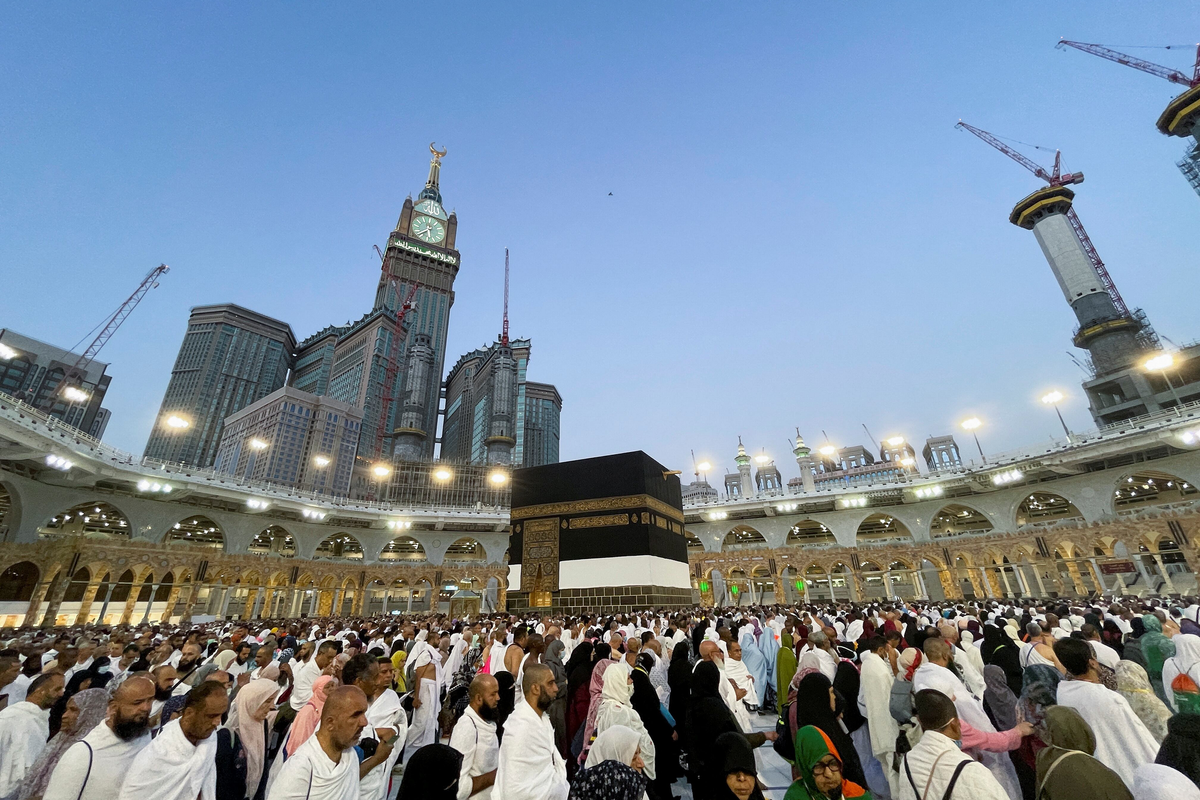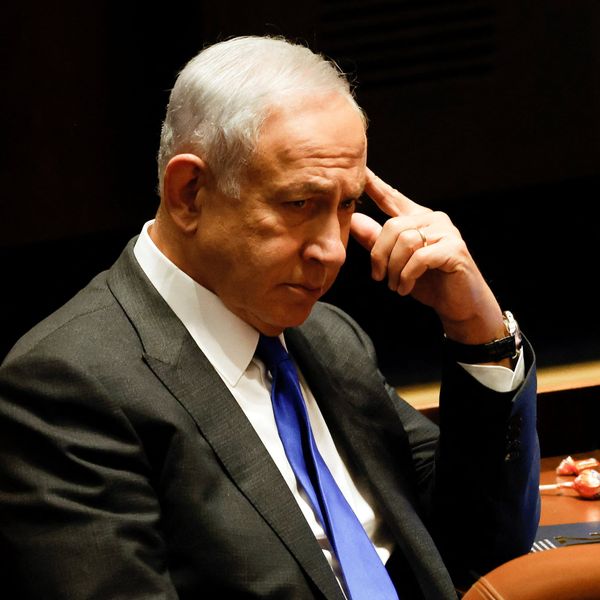Pakistan govt defends role in Hajj quota crisis as scrutiny grows
Nukta-obtained documents show the Pakistan’s Religious Affairs Ministry blames tour operators for missing payment deadlines amid the Hajj quota crisis

Javed Hussain
Correspondent
I have almost 20 years of experience in print, radio, and TV media. I started my career with "Daily Jang" after which I got the opportunity to work in FM 103, Radio Pakistan, News One, Ab Tak News, Dawn News TV, Dunya News, 92 News and regional channels Rohi TV, Apna Channel and Sach TV where I worked and gained experience in different areas of all three mediums. My journey from reporting to news anchor in these organisations was excellent. Now, I am working as a correspondent with Nukta in Islamabad, where I get the opportunity of in-depth journalism and storytelling while I am now covering parliamentary affairs, politics, and technology.

A new layer of complexity has surfaced in the controversy surrounding the cancellation of 67,000 private Hajj quotas for Pakistan in 2025 as the Ministry of Religious Affairs has now issued a detailed explanation addressing key concerns over a SAR 50 million transfer by private tour operators and the subsequent system access issues faced by Pakistani Hajj organizers.
Documents obtained by Nukta reveal that the ministry responded to two major questions raised in parliamentary standing committees:
- Why private operators’ funds were routed through the Office of Pilgrims Affairs Pakistan (OPAP), and
- Why the system IDs of these operators were blocked, halting their booking access for crucial weeks.
Why was SAR 50 million transferred to OPAP?
According to the official clarification, the OPAP e-wallet received SAR 50.96 million on December 17, 2024. The transfer was made from OPAP’s main account -- designated specifically for private Hajj funds -- following a request by the Hajj Organizers Association of Pakistan (HOAP).
The aim, officials said, was to expedite camp and Tawaffa bookings, using the same process followed in 2024, where such payments were channeled through OPAP in accordance with Saudi Arabia’s Ministry of Hajj and Umrah (MoHU) instructions.
However, the MoHU later revised the protocol for 2025, directing that all payments be made directly through individual Munazzam (tour operator) e-wallets. In response, OPAP coordinated the return of the entire amount -- SAR 38 million on January 20, 2025, and the remaining SAR 12.96 million on January 28 -- well before the Kidana deadline for bookings.
Kidana is the Saudi authority responsible for managing Hajj residential camps near holy sites.
The ministry emphasized that this temporary routing of funds had “no adverse impact” on operational timelines. In fact, OPAP claimed it was actively assisting HOAP in securing plots during this period and did not use private funds for any government-related arrangements.
Are tour operators to be blamed?
The Directorate of Hajj in Saudi Arabia, operating under the Ministry of Religious Affairs, maintained that the delay in payments and bookings was the result of financial mismanagement on the part of private tour operators. The ministry said that by February 14, 2025, HOAP had only transferred SAR 148.89 million -- far short of the required SAR 400 million -- ultimately failing to meet booking deadlines.
The ministry also reiterated that since no official change in procedure had been communicated prior to January 2, 2025, the previous year’s method was initially followed in good faith. In a meeting held on that date, Saudi officials informed HOAP and Pakistani authorities of the updated requirement for direct e-wallet transactions.
Efforts to reverse the initial transfer began shortly thereafter, though such financial reversals are known to take time.
Further correspondence obtained by Nukta reveals that technical limitations also played a role in the delay surrounding the SAR 50 million fund transfer.
According to internal letters, Ali Osta, Senior Project Manager at Nusuk, proposed developing a new module to allow direct transfers from the OPAP e-wallet to individual Munazzima (tour operator) e-wallets. He estimated that this new feature would take four to five days to implement.
While waiting for the module to go live, OPAP followed up for three days and formally wrote to Osta on January 5, 2025, requesting an update. In the interim, on January 20, OPAP proactively returned SAR 38 million from its own bank account to HOAP's account to ensure tour operators were not left stranded.
Following continued efforts by HOAP, the remaining SAR 12.96 million was successfully transferred from OPAP’s e-wallet to the Munazzima e-wallet on January 28, 2025.
The full amount -- SAR 50.96 million -- was thus available in the Munazzima e-Hajj wallet more than two weeks before the critical Kidana camp booking deadline of February 14, 2025. The documents stress that at no point did OPAP use HOAP’s funds for any government Hajj-related bookings, nor were those funds ever diverted. In fact, OPAP maintained sufficient reserves in its own account throughout the process.
The ministry has reiterated that the fund transfer to OPAP’s e-wallet was made solely on HOAP’s request, to help tour operators meet Saudi Arabia’s Ministry of Hajj and Umrah (MoHU) requirements.
The eventual shortfall in bookings, officials say, stemmed from HOAP’s failure to raise the required capital -- only SAR 148.89 million had been collected by February 14, far below the SAR 400 million threshold needed.
Why was HOAP’s system ID blocked -- and did it cause delays?
The second major issue raised by stakeholders concerns the blocking of private tour operators' system IDs, which temporarily restricted their access to key booking platforms. OPAP has confirmed that HOAP’s system ID was deactivated on January 6, 2025, following verbal instructions from then-secretary Religious Affairs & Interfaith Harmony (RA&IH), Zulfiqar Haider. This action was reportedly in response to a contempt of court notice related to a stay order issued in the ongoing legal proceedings.
However, the ID was reinstated just two days later -- on January 8 -- after HOAP formally withdrew its petition and signed a Service Provider Agreement (SPA). Ministry officials insist this temporary deactivation had no material impact on bookings, as the final deadline remained February 14, giving HOAP ample time to complete entries.
Clarifying further, the ministry noted that while OPAP is responsible for handling HOAP’s bookings under MoHU guidelines, a dedicated system ID had been created to allow HOAP to independently enter data.
Even during the temporary deactivation, HOAP had the option to submit booking details manually at OPAP offices, ensuring the process could continue with minimal disruption. Officials say HOAP’s concerns may not fully reflect the operational backup systems that were in place.
High-level probe underway
Meanwhile, Prime Minister Shehbaz Sharif has formed two committees -- headed by the Secretary Cabinet Division and Federal Minister Musadik Malik -- to investigate the reasons behind the cancellation of Pakistan’s 67,000 private Hajj quota for 2025.
Separately, the Senate Standing Committee has formed a subcommittee led by Senator Aun Abbas to further probe the issue and determine accountability.







Comments
See what people are discussing